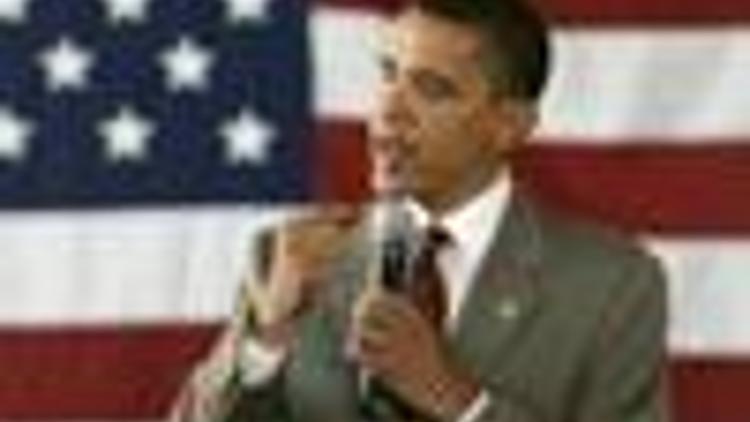Obama has narrow lead on McCain: poll
Güncelleme Tarihi:

Democrat Barack Obama has a narrow 5-point lead on Republican John McCain in the U.S. presidential race, but holds a big early edge with the crucial swing voting blocs of independents and women, according to a Reuters/Zogby poll released on Wednesday.
Two weeks after clinching the Democratic nomination and kicking off the general election campaign, Obama leads McCain by 47 percent to 42 percent. That is down slightly from Obama's 8-point advantage on McCain in May, before Sen. Hillary Clinton of New York left the Democratic race.�
But Obama holds a big 52 percent to 30 percent edge among independents and 51 percent to 36 percent among women -- two critical voting blocs that could help determine the winner in November's presidential election.
"Obama's significant lead among independents puts him over the top, and that's a problem for McCain," pollster John Zogby said. "McCain is going to have to appeal to independents in some way to win, and right now he has a lot of work to do."
Obama, 46, still must overcome questions about his relative lack of experience, the survey showed. More than half of likely voters agree with criticism the first-term senator from Illinois does not have the necessary experience.
Questions about McCain's age -- he will be 72 in August and would be the oldest person to become president if elected -- do not resonate as strongly with voters, the survey found. Nearly two-thirds disagreed with the idea that McCain's age should be a factor in the presidential race.
"The experience question is a hurdle for Obama, but so far voters seem to have other things on their mind like change," Zogby said. "Age is an issue for McCain, but it doesn't appear to be an overwhelming problem."
Obama, who would be the first black U.S. president, triumphed in early June after a grueling five-month Democratic nomination fight with Clinton. McCain clinched the Republican race in March.
But Obama did not get a bounce in polls out of his victory. After the long nominating race voters are already familiar with the candidates and settling into a pattern, Zogby said.
"This race is starting out very close, and barring something dramatic is likely to stay close at least until near the end," he said.
McCain and Obama have clashed sharply on economic and security issues in the campaign's early stages. Obama has tried to link McCain to the policies of unpopular President George W. Bush and McCain has questioned Obama's judgment and experience.
OBAMA LEADS ON ECONOMY
The survey found voters gave Obama a narrow edge over McCain as a manager of the economy, 45 percent to 40 percent. Independents preferred Obama on the economy by 50 percent to 28 percent.
Obama's margin on economic leadership was down slightly from his 9-point advantage on McCain last month. McCain has criticized Obama for his plans to raise taxes on Americans who make more than $250,000 a year and to raise capital gains tax rates.
McCain led Obama among white voters, men, born-again Christians and high-income voters. Obama led among Hispanics, blacks, Catholics, young voters, suburban voters and union households. The two were essentially tied among voters over the age of 65.
Obama, an Iraq war opponent who has been labeled a liberal by Republicans, earned the support of about one-fifth of voters who identified themselves as conservative.
McCain, a former Navy pilot and Vietnam prisoner of war who has been a staunch advocate of the Iraq war, led 45 percent to 39 percent among families that include members of the armed forces.�
"That a decorated hero like McCain, particularly a Republican, is not leading among that group by a huge amount is very significant," Zogby said. "That is really all about Iraq."
The inclusion of independent candidate Ralph Nader and Libertarian Party candidate Bob Barr, who are both in the process of trying to add their names to state ballots, did little to change the shape of the presidential race.
When Nader and Barr were included in the survey, Obama still led McCain by 5 percent, 45 percent to 40 percent. Nader and Barr each gained 3 percent of the vote.
The national survey of 1,113 likely voters, taken Thursday through Saturday, had a margin of error of 3 percentage points.
Photo: Reuters

